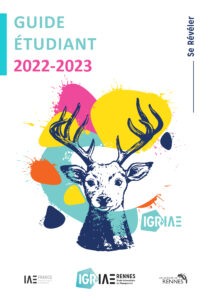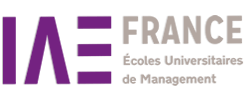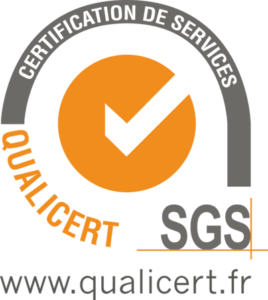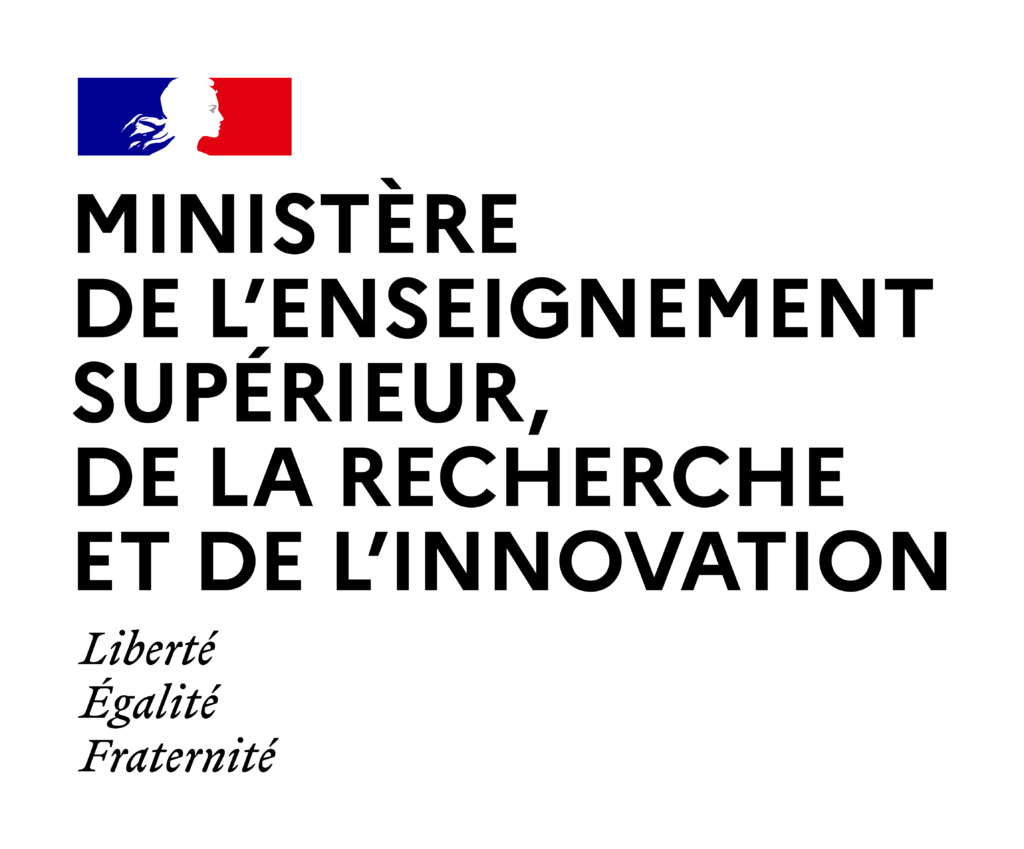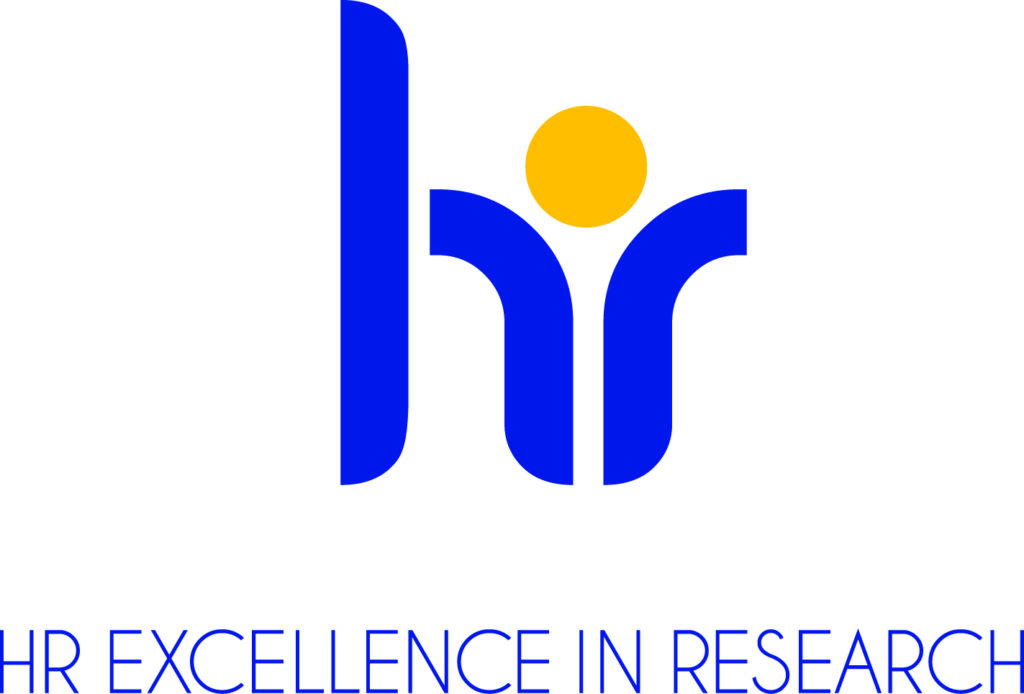Home / FAQ
FAQ
Our Master programs coordinators organize weekly online information sessions in order to share information on Rennes, our school and the application process. You may register here: https://cutt.ly/TnGJmZl. At any time, your may ask all your questions to your program coordinator. Below, you will find answers to some of the frequently asked questions we hear from our candidates.
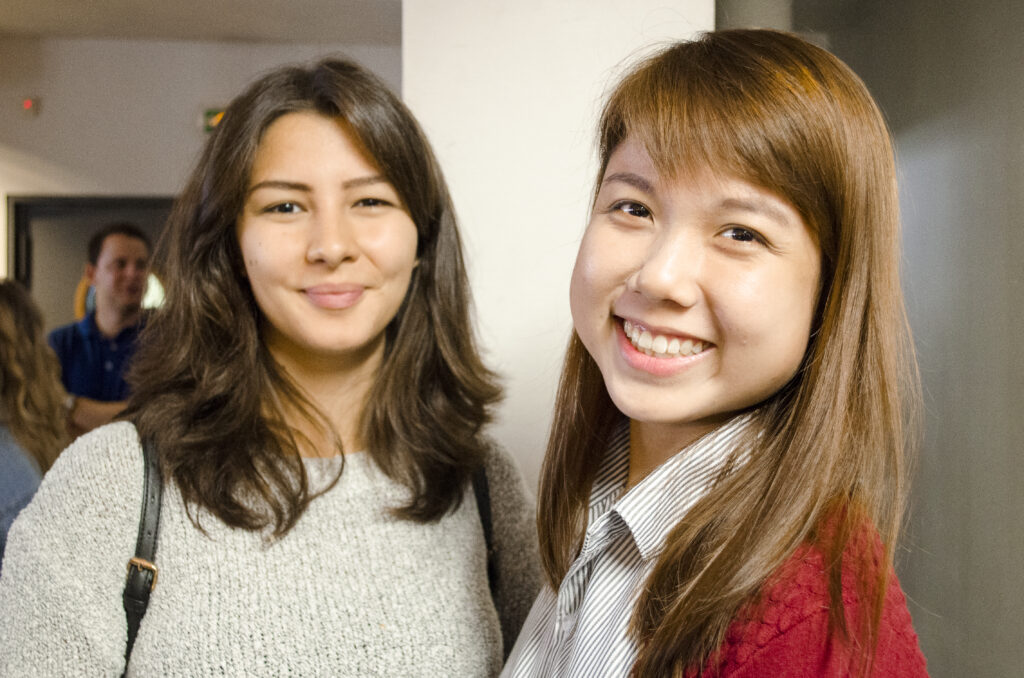
FAQ
Who can apply for a Master program taught in English at IGR-IAE Rennes?
Our programs are taught at a Master level, leading to Master’s degrees fully accredited by the French state.
In order to apply, students should hold a 3-year Bachelor’s business school diploma.
When do applications start?
The application platform opens in November. All the students who have contacted us by email or via the contact platform are notified as soon as applications open.
When is the application deadline?
The application deadline is March 31.
Do I need to speak French?
Students taking courses in English are not required to have any prior French language knowledge. However, it is very useful to know at least some basic French in order to manage in everyday life.
Does IGR-IAE Rennes organize an Orientation Program?
An orientation day is organized at the beginning of September. The international students coordinators share important information (schedules, classes, grading system…) and guidelines for the registration at the Registrar’s Office. This is also a good opportunity to get to know your major contacts at IGR-IAE Rennes. If you arrive later, please contact the International Office as soon as you arrive in Rennes in order to get as much information as possible and start your registration at the Registrar’s Office.
Other events are organized by the University of Rennes 1 and by other organizations in Rennes in order to greet newcomers in general, and international students in particular.
Do you provide a pickup service from the airport?
The international office of IGR-IAE Rennes offers a buddy system: French IGR-IAE Rennes students will greet you at Rennes airport, the railway station or bus station and take you to your place of residence (student residence on campus or private accommodation). This service is organized during the weeks prior to your arrival in Rennes. You will receive information from your program coordinator.
What should I do if I miss my train/plane?
You should inform your international student coordinator about the delay, as well as your appointed buddy.
What is the amount of the tuition fee?
- Fore the Master 2 Advanced Studies and Research in Finance : The tuition fee for the academic year 2023-2024 is 6 990 Euros.
- For our full 2-year Masters (Master Accounting and Auditing / Master MBA in International Management / Master in International Human Resource Mangement) : Tuition fee for the whole program is 9,500 €, spread as follows over the two academic years: 5,750 € for the 1st year of the program, 3,750 € for the 2nd year of the program.
May I pay in several instalments?
Unfortunately, this is not possible. Upon acceptance, you will pay a first deposit of 1500 €. The rest of the payment should be be made in September, by bank transfer or card upon administrative registration, in order to be able to receive the student card.
How much should I expect to budget for each month?
It depends on your habits. When issuing visas, the French government demands evidence that international students receive 650€/month. We advise students to budget more than that to fully enjoy their stay in France. See the dedicated page on our website.
How much money should I bring when I travel to Rennes?
It isn’t advisable to bring large sums of cash but you will need some (preferably in small bills) before you open a bank account or find an ATM that is linked to your bank.
Can I apply for any financial help?
Please check the dedicated page on this topic.
Do I really need to open a French bank account?
It is recommended to have one. To open an account you will need: a proof of your ID (passport or national identity card), a proof of accommodation in France and your student card. When you open an account, remember to ask for a checkbook, which is not automatic. Do not forget to close your bank account before your departure!
When should I apply?
You can apply any time until March 31. The sooner the better, so that you have more time to organize your trip, your stay and your accommodation in Rennes.
Do I have to fill in an enrollment form?
The whole application system is online. As soon as you have completed your application, the program director will be notified of your application. After he/she reviews your application, you will either receive a negative answer, or your will be invited to attend an interview which can be online of course. After the interview you will be rapidly notified of the final answer.
How can I check that you have received my application and that it is complete?
The international student coordinator will notify you if your application is complete and can be assessed by the program director, or if something is wrong or missing.
What are the language requirements?
A B2 level in English is required.
The language test in English is not mandatory if you are a Native English speaker or if you studied in English at University level. Non-English native speakers must submit official international scores of one of the following tests:
• TOEFL: 550 minimum paper test (80 IBT);
• TOEIC: 750 or above;
• IELTS: overall band score of 6 for Academic version;
• Proof of prior Higher Education in English speaking country (GPA of 2-4 scale).
I am expecting to receive my new passport, can I apply?
Yes, please upload a photocopy of your current passport and email us your new passport details as soon as you receive it.
When will I receive a student card?
In September, you will meet the program coordinator in order to check that all the information and supporting documents and payments are complete. After a couple of days, you will receive your student card.
What are the teaching methods?
Teaching methods may be different from universities you attended previously: lectures, case studies, simulations, debates. Teachers expect active class participation, teamwork and proper behavior. Flawless attendance is mandatory. If you cannot attend a class, please inform your international student coordinator immediately.
When is the exam period?
There is an exam period at the end of each semester. During that week you will have final exams for some of the courses, while others will be evaluated by continuous assessment.
Can I learn French while studying at IGR-IAE Rennes?
240 hours of French as a foreign language are included in the Master program. A week of intensive French classes is scheduled in September in order to improve rapidly all the students’ levels. Other intensive courses is organized inDecember and April.
How long do classes last?
Classes generally last 3 hours with a 15-minute break.
How many hours will I have in a week?
Every week will be different. Some teaching units will be intensive, while in others, you will have 3 hours per week for several weeks.
Where can I find my schedule/class timetable?
You can find your schedule on your digital workspace (ENT stands for Espace Numérique de Travail) on the University’s students portal, which will be available as soon as your student card is active.
How many students are there in a class?
Our English taught Master 2 have relatively small groups (from 15 to 25 students). The Master 1 will hosts a larger group of students.
What is the academic calendar?
Fall semester is from September to December; Spring semester from January to March.
When will I receive my grade transcript?
After the end of each semester, the examination board meets. Quickly after that, you will be notified that your grades are available on your digital workspace. Hard copies of your grade transcripts are rapidly available after that.
Will I study with French students or is there a special group for international students?
Our Masters in English are mostly comprised of international students. You will have many opportunities to meet French students in various events and activities organized by the very active student associations, or at conferences, etc..
Where can I get support and advice for studying with disabilities?
Please contact the international student coordinators. They will get in touch with the adequate department at the University of Rennes 1.
What is the grading system?
At IGR-IAE Rennes, as more generally in France, we use a 0-20 scale to report all the grades. The grading scales goes from the bottom grade, 0 points (extremely disastrous performances or “no show” to the top grade, 19-20 points for an outstanding performance (rarely awarded). 10 is the passing grade (10-11 C, 12-14 B, 15-16 A, 17-20 A+). Grades from 0 to 9,9 will fail and lead to re-sit exams (also called second sessions).
Do I have to do an internship as part of my studies?
In order to validate their diploma, our students must do a professional experience (internship or job). The internship calendar varies depending on the program attended. Please check with the program director or coordinator. Students are accompanied in their search by the program director and by the Internship and Career Office, with internship offers, advice to adapt their CV to the job and internship search in France.
How much do textbooks cost?
They are rarely used. Most of the materials are Internet-based or hand-outs in class.
Do I have a special email address at IGR-IAE Rennes?
Yes, all students receive an email account upon enrolment.
We advise you to check that mailbox daily as teachers, staff and student associations and clubs will send you all information (schedules, exams, teaching material…) on this address.
When is the campus open?
Under normal sanitary conditions, IGR-IAE Rennes campus is open from 7h15 to 21h00.
What services are provided on the campus?
Printing machines, computers, WiFi, study rooms, cafeteria. The downtown campus library is a 10 minute walk from IGR-IAE Rennes.
Will I have to bring my laptop?
It is strongly recommended to bring your own laptop.
If I need to go back to my home country for a few days during the semester what I am supposed to do?
Get in touch immediately with your international student coordinator in order to provide official documentation to justify your absence. Also inform your professors and friends, so that you can get your teaching material and other essential information when you return.
Can I work part-time while I am studying?
Citizens from the EU can work in France.
Other international students are allowed to work only part time.
However, do not underestimate your course load and workload and don’t forget that your classes need preparation and full attendance. Also a good level of French is essential to get any kind of job.
When are the French public holidays?
All Saints Day 1st November,
Armistice Day 11th November,
Christmas Day 25th December,
New Year’s Day 1st January,
Easter Monday,
Labour Day 1st May,
WWII Victory Day 8th May,
Thursday of Ascension in May
Pentecost in June.
What to do if I have a problem?
If you have any problem, you can contact the international student coordinators (1st floor, room 123). You can also meet your program director or the Director of International Affairs.
Do I need a visa to study in France?
European students do not need to meet this requirement. If you are unsure whether or not you require a visa (for example if you were born outside Europe and reside in Europe), please consult the French Ministry of Foreign Affairs’ website :
https://france-visas.gouv.fr/en_US/web/france-visas/ai-je-besoin-d-un-visa.
If your country is part of the Etudes en France system, you will have to go through a specific procedure.
You can apply to our programs via the Etudes en France platform (be careful of the specific application deadlines and procedures). The steps will be similar to the direct application on IGR-IAE website. The international student coordinators will guide you through the process.
When should I apply for a visa?
You should start the procedure right after receiving an admission letter or at least 3 months before traveling.
Be careful of the specific procedure if your country is part of the Etudes en France (see above).
What documents do I need to apply for the visa?
You will get an updated list of documents on the French embassy (or consulate) in your country. IGR-IAE Rennes will provide an acceptance letter and proof of accommodation letter (only if you apply for accommodation in a CROUS-run residence).
If your country is part of the Etudes en France procedure, you will have to provide all the requested application documents, and go through the application procedure with the Campus France agency in your country.
Which address should I communicate when applying for visa if I don’t know yet my permanent address in France?
You can exceptionally give the address of the IGR-IAE Rennes, 11 rue Jean Macé 35700 RENNES. Remember though that you will not be lodged there. This is not a housing invitation.
What is the OFII procedure?
You will be issued a long-stay visa, equivalent to a residence permit, which will be subject to further formalities on your arrival in France.
Upon your arrival in France, You have to validate your visa on the OFII online platform : https://administration-etrangers-en-france.interieur.gouv.fr/particuliers/#/vls-ts/demarches/etape/numero-visa.
You will have to pay a 50 euros tax stamp for this visa validation.
Once you have received the visa validation confirmation by email, your visa is your residence permit until the end date indicated on the visa.
Can I obtain a visa at the French border?
No, this is not possible.
Several months before departure, you have to contact Campus France or relevant French Embassy or Consulate in your country of residence.
Can I travel outside France during my studies in France?
Normally, you can travel inside the Schengen Area. If you hold a visa, you will have to wait until validation of your visa (see OFII procedure above) to be able to travel freely. For travels outside the Schengen Area (Great Britain for instance), you will need to apply for a visa.
What is “sécurite sociale”?
The “sécurité sociale” is the French national social system. It ensures basic social reimbursements for everyone in France under this system. As soon as you have received your IGR-IAE Rennes student card, you can register on the Sécurité Sociale website.
Do I have to apply for French Student Social Coverage (health insurance) if I have a European Health Insurance Card?
No, but you must make sure that your European Health Insurance Card is valid until the end of the academic year (September 30 of the following year).
As a Non-European student, can I use my personal private insurance instead of applying for French health insurance?
No, it is mandatory to register to the French Sécurité Sociale .
How much does it cost to register with the French Social Security?
It is free of charge for French and international students.
Can I subscribe and pay the French Social Security Coverage prior my arrival in France?
No, you need to be registered at IGR-IAE Rennes, in order to register at the Sécurité Sociale and get coverage within the student health insurance system.
How long will I be covered by the French Social Security?
For the whole duration of your Master studies.
What is a “mutuelle”?
The “sécurité sociale” gives only basic coverage. We recommend all students to buy additional health insurance called “mutuelle”, covering the additional 30 to 35% of medical expenses. There are several options, varying from 5 to 25 € / month.
I feel homesick, what should I do?
The first advice is to talk with your friends and classmates. Most certainly, one of them will share some advice and distract you from your feelings. Don’t forget that your program coordinator can help you or refer you to a specialist if your condition seems serious.
What should I do if I get sick?
For a simple health problem, you can ask the pharmacist for advice. For a medical consultation, don’t forget to bring your European Health Insurance Card or your enrolment certificate, until you receive your Carte Vitale (Sécurité Sociale card). An updated information document, and list of English-speaking medical doctors will be given to you upon arrival at IGR-IAE Rennes. Here is a small recap of what you should do depending on the seriousness of the problem.
What are the housing possibilities?
International students, are given the possibility to be housed in the student dorms located on campus for the entire academic year via a simplified procedure. The CROUS, the official French student welfare organization, runs these affordable residences.
A 10-15 minute bus ride from any of the residence halls will take you directly to IGR-IAE Rennes.
The rent per month of 244 euros (rent for the 2022-2023 academic year) is the least expensive accommodation for students available in the city and avoids many additional fees like Internet, electricity, etc.
How can I apply for campus housing?
International students apply for CROUS housing via a simplified procedure, under the guidance of the international student coordinators. We advise students against contacting the CROUS directly. Applications for a CROUS accommodation is only possible once your have paid your deposit, thus showing you are definitely confirming your attendance.
Does IGR-IAE Rennes offer assistance with off-campus housing?
Students can also look for accommodation on the private market. Information on apartment search in Rennes has been put together by the CMI (International Mobility Center) in order to help students.
https://cmi.univ-rennes.fr/en/international-student-your-stay-rennes/finding-accommodation-renne.
A new partnership has been established between the university of Rennes 1 and the Studapart organization, giving access to many accommodation opportunities: https://univ-rennes.studapart.com/en/.
Is there a possibility to be hosted by a French family?
This service is not currently offered by IGR-IAE Rennes.
Do I really need to open a French bank account, even if I stay in Rennes only for one semester?
It is advisable to have one. To open an account you will need: a proof of your ID (passport or national identity card), a proof of accommodation in France and your student card. When you open an account, remember to ask for a checkbook (this is not automatic). Do not forget to close your bank account before your departure!
Where can I buy my public transport card?
You can order on the public transportation company’s website (www.star.fr). The monthly pass costs 33,60 €.
What electricity voltage is used in France?
It is 220 volts. Keep in mind that the electricity sockets may be different from those in your country. You may need to purchase an adapter.
Are there any supermarkets in the city centre?
In the center, you will find medium-sized grocery stores. There are bigger supermarkets locate outside the city centre such a Géant Casino, Carrefour, Lidl, Hyper U, etc. You can get there by bus.
Are there any laundries in the city centre?
Yes, there are several laundries in town. There may be services in your residence.
You have not found answers to your questions? Send an email to the incoming students coordinator: igr.international-degree@univ-rennes.fr!
You may also check the full 2022-2023 Welcome Guide


